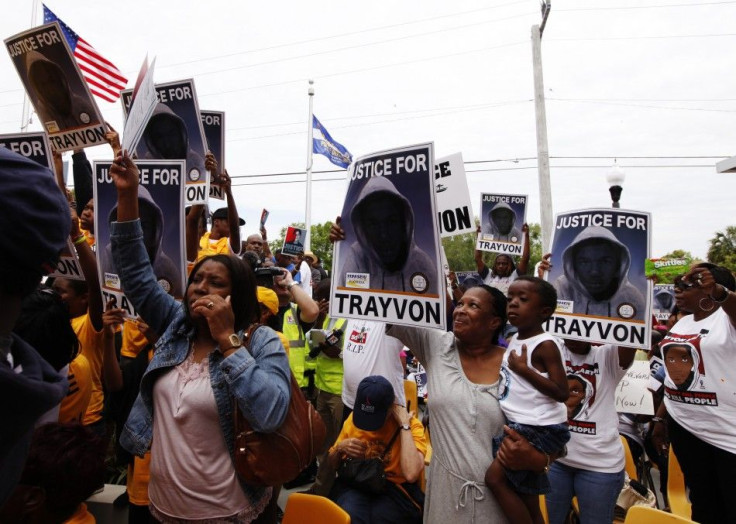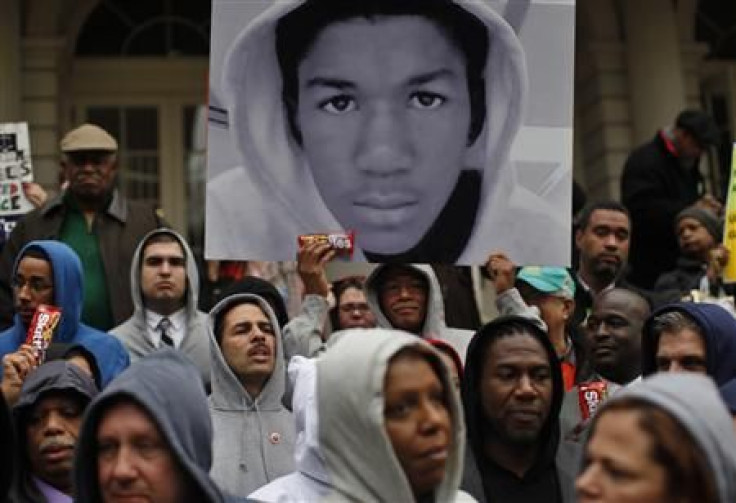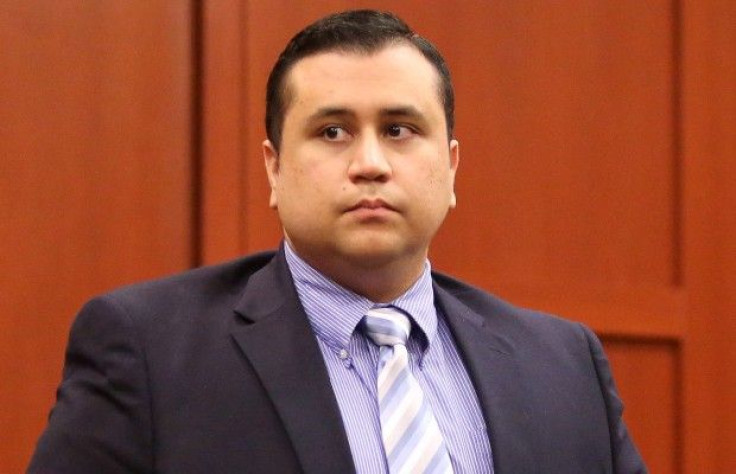Trayvon Martin One-Year Anniversary: Florida Gun Laws Haven't Changed

The shooting death of Florida teenager Trayvon Martin last February not only reignited a discussion about race relations in the United States. It was also among the first of a series of high-profile gun deaths that plagued the nation in 2012, a year when seven mass shootings occurred across the country.
Following the last and worst mass shooting of the year – the elementary school massacre in Newtown, Conn. -- the nation’s gun control movement showed its first sign of revival in more than a decade. President Barack Obama created a task force dedicated to gun violence prevention, former U.S. Rep. Gabrielle Giffords – who was shot point-blank in the head two years ago – and her husband created a gun control lobbying group that aspires to become the anti-National Rifle Association, and even some Republicans have publicly supported modest restrictions like universal background checks.
But what about Florida? A year after Martin, an African-American, was shot and killed in a gated Sanford community by neighborhood watch volunteer George Zimmerman, the son of a white father and a Latina mother, the Sunshine State has made no real move to reform its permissive firearm laws.
Florida Task Force: Stand Your Ground Is Fine, As Is
Martin’s death put a spotlight on Florida’s controversial “Stand Your Ground" law, which allows an individual to use deadly force – literally allowing them to “stand their ground” – against an assailant if he or she believes their life is in danger. The Florida version, unlike other states with the policy, does not include a duty to retreat and grants immunity from prosecution. Opponents, as a result, call it a “license to kill” and the “shoot first” law.
The law has been widely cited as a potential defense for Zimmerman, who claims he pulled his weapon on Martin after the 17-year-old jumped him and attempted to grab his firearm.

A 19-member task force was commissioned by Gov. Rick Scott to review the state’s Stand Your Ground law in the weeks following Martin’s killing. But last week, shortly before the anniversary of Martin’s death, the task force released its final report on the matter that largely supports keeping the rule intact.
“All persons who are conducting themselves in a lawful manner have a fundamental right to stand their ground and defend themselves from attack with proportionate force in every place they have a lawful right to be,” the report reads, according to the Tampa Bay Times.
Instead, the task force recommended tightening standards for neighborhood watch groups, commissioning a study to analyze the racial disparities and "unintended consequences" of Stand Your Ground, and reconsidering the state’s 10-20-Life mandatory minimum sentencing law.
However, all of those moves would likely require legislative action that could face heavy opposition in the GOP-controlled State House.
Democratic members of the Legislature say they never expected the task force to make any monumental recommendations, even in the wake of Martin’s notorious death.
“When you put a task force together of people who wrote the bill and full of people who support 'stand your ground,' I knew that the task force wouldn't come up with anything earth-shattering," Senate Democratic leader Chris Smith told the News Service of Florida.
Smith reportedly asked to be on the task force, but was not appointed.
Two members of the task force have said they had hoped it would push more changes, at least acknowledging the existence studies that suggest Stand Your Ground has primarily been used as a defense for white men accused of killing minorities.
On Monday, Martin’s mother Sybrina Fulton told NPR she is lobbying for a “Trayvon Martin amendment” that would be attached to Stand Your Ground laws. The amendment would specify that a firearm owner who pursues a perpetrator or acts as an “aggressor” cannot be protected by the statute.
Will Zimmerman’s Defense Actually Save Stand Your Ground?
While Zimmerman’s name may be attached to Stand Your Ground like no other, his attorney Mark O’Mara is not using it as a defense.
According to O’Mara, his client cannot be covered by the statute because he purportedly did not have an opportunity to even consider whether retreat was an option.
“Stop calling it a Stand Your Ground statute,” O’Mara recently told The Washington Post. “I define Stand Your Ground as having an opportunity to retreat and you affirmatively decide not to.”

As the article points out, the official Florida statute makes no mention of that qualifier. Instead, it clearly states that an individual under attack “has no duty to retreat and has the right to stand his or her ground and meet force with force.”
And while O’Mara insists Stand Your Ground is not relevant, he is simultaneously holding a special pre-trial immunity hearing allowable by that very law in an attempt to have Zimmerman’s second-degree murder charge dismissed. As noted by Martin family attorney Benjamin Crump, “If it’s not ‘stand your ground’ then let’s go ahead and have the trial. Let’s go have the trial.”
What this says for the future of Stand Your Ground is unclear. But it’s safe to say that keeping the statute away from public scrutiny is probably the best way to preserve it.
After all, while those statues exist in 30 states, they received little-to-no attention until Martin’s untimely death. Even now, when gun violence prevention is at the top of the national agenda, the dozens of “shoot first” law in the nation have been overshadowed by debates over the constitutionality of universal background checks and an assault weapons ban.
After the Florida task force’s rather tame report, Zimmerman’s trial may be the only opportunity to truly discuss the potential consequences of a law that legally allows gun owners to shoot now (and think later) if they somehow believe their life is being threatened. If O’Mara relies on a traditional self-defense argument, the law – and all the problems attached to it – could be swept under the rug until the cycle repeats itself.
© Copyright IBTimes 2024. All rights reserved.











